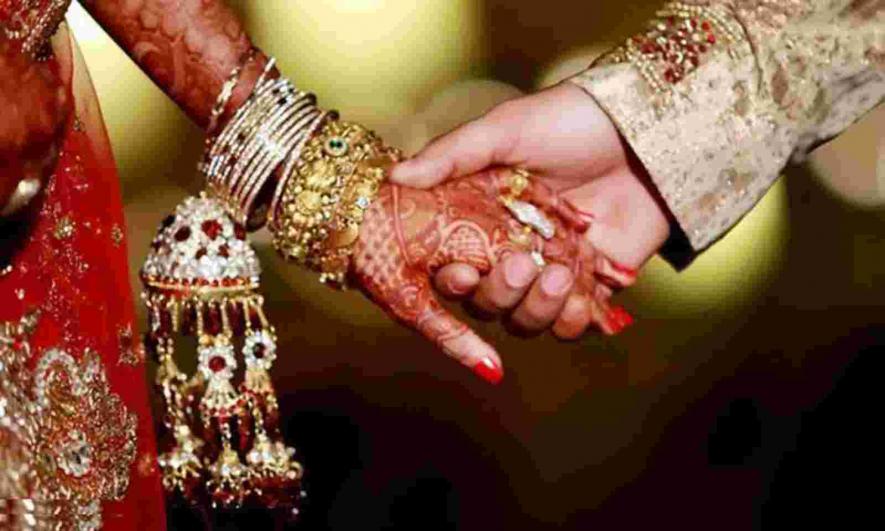Increasing Legal Age of Marriage For Women to 21 Years Not Solution to Child Marriage

Image Courtesy: Live Law
From choosing their education and career to selecting life partners and the kind of life they want to lead, women have very little independence in our patriarchal society. Child infanticide, honour killing, domestic violence, rape and other forms of sexual abuse show how women have always been considered the inferior sex, subjugated by men and subject to mistreatment.
Society has always attacked the autonomy of women. The recent introduction of the Prohibition of Child Marriage (Amendment) Bill, 2021, an amendment of the Prohibition of Child Marriage Act, 2006, which raises the minimum legal age of marriage for women from 18 to 21 years, in the Lok Sabha is an example.
The legal age of marriage for women was increased from 16 to 18 years in 1978 to provide them more access to education and health and curb the increasing number of child marriages. However, the practice of child marriage is still prevalent.
The latest data shared by UNICEF, ICRW and NFHS shows that the percentage of child marriages is between 27%-47%. It shows that law alone can’t help eradicate this medieval practice; the government and we, as a society, have to put in more efforts.
The age of consent is 18 years and one attains majority and is considered legally mature to take decisions on his/her own. It means that two consenting adults who have reached the age of majority can have a sexual relationship without any legal bar.
The Bill raises a peculiar question: how can an individual have consensual sex at 18 years but not be allowed to marry till he/she attains the age of 21? Though I am not against the concept of live-ins, increasing the legal age of marriage to 21 years would encourage younger couples to opt for live-ins. This would weaken the institution of marriage in the long run and negatively impact the rights of women as live-in rights are not very strong. On the other hand, marital rights are concrete and well-structured under both general and personal laws.
Another flaw in the Bill is categorising independent mature women in the 18-21 age bracket into immature adults who will lose their decision-making powers under further control of their parents. We will have more confused women who can decide their careers or enter into a business contract but are unable to select life partners. The proposed law only seeks to encourage the patriarchal mindset of society.
The government claims that the proposed law, which intends to provide educational and health facilities to women by increasing the marriageable age, would expand their career opportunities.
The law’s intended purpose can be achieved without any legal compulsion and by creating more awareness in society, especially in rural areas, where child marriage is more prevalent primarily due to poverty and the concern for their safety. There is little or no basic education and healthcare for girls in rural areas—for example, the lack of proper washrooms in schools and their distant location are the major causes of the high dropout rate of girl students. In the poor households where both the parents work, the girlchild is left alone, raising safety concerns. Therefore, the government should focus more on women’s education, safety and health in the lower strata.
The Bill is also not clear about the rights of the child bride. It should clearly define the rights of the child bride as it does not make child marriage void. Such a marriage can only be declared void by the court if either of the parties files a petition.
The rights of a child born during such a marriage are protected in the personal laws. For example, a child born during the marriage is considered legitimate even after it has been declared void as per Section 16 of the Hindu Marriage Act, 1955. The rights of the mother (the child bride) are not well defined. The proposed law should mention some concrete rights of the child bride.
Lastly, this proposed law also has some constitutional issues. It will interfere with the personal laws of certain communities because the government wants the proposed law to be made applicable across religions. Article 25 states that “all persons are equally entitled to freedom of conscience and the right freely to profess, practise and propagate religion”. Therefore, it will be difficult for the proposed law to pass the constitutional challenge whenever it is challenged in the Supreme Court.
Given the above reasons, the government must invest in education and health. Increased investment guaranteeing facilities for girls where they can choose their careers, social awareness and more budgetary allocation to their education, health and security is the answer to the problem of child marriage.
The writer is a fourth-year law student at the Aligarh Muslim University. The views are personal.
Get the latest reports & analysis with people's perspective on Protests, movements & deep analytical videos, discussions of the current affairs in your Telegram app. Subscribe to NewsClick's Telegram channel & get Real-Time updates on stories, as they get published on our website.
























